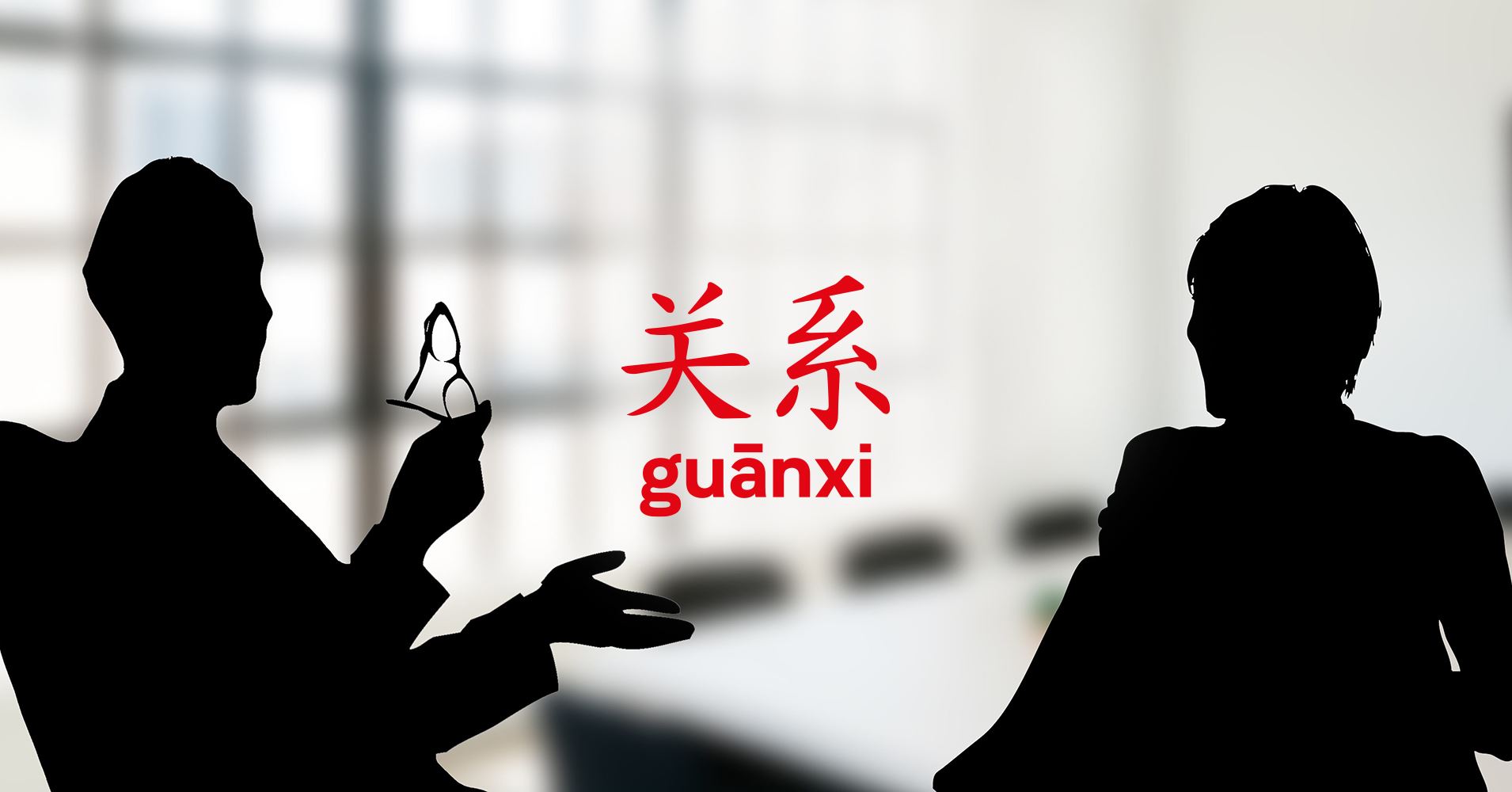Negotiate payment terms

Introduction
In the intricate world of global business, payment terms in supplier relationships hold immense importance. These terms define how businesses exchange payments, creating a framework for financial transactions. This article focuses on payment terms in the context of international trade, especially when dealing with Chinese suppliers. It explores the significance of payment terms and the challenges of managing them in such business relationships.
Understanding the Significance of Payment Terms
Payment terms serve as the foundation for business interactions between buyers and suppliers. They specify when, how, and in what currency payments are made for goods or services. Beyond these practical aspects, payment terms also influence cash flow management, risk mitigation, and the development of long-term supplier relationships. Essentially, they set the financial rhythm of business transactions.
Challenges When Dealing with Chinese Suppliers
Engaging in international trade, especially with Chinese suppliers, comes with its own unique challenges. Language barriers, cultural differences, and geographical distances can complicate the process. To overcome these obstacles, a strategic approach and a deep understanding of the complexities involved are essential.
Preparing for Negotiation
1. Researching Your Chinese Supplier
In the complex world of international trade, knowledge is a valuable asset. Before entering negotiations, thorough research of your potential Chinese supplier is essential. This involves delving into their background to understand the essence of the organization. Study their corporate history, including evolution, changes, and past affiliations. Examine their legal status and ownership structure. This initial step is crucial in gaining insight into the entity you are dealing with in the international trade arena.
Background Check
Digging deeper into the supplier's history is the next step. This involves investigating their past actions and behavior. Look for information on previous transactions with other clients. Are there any hidden issues or problems? Conducting a comprehensive background check can reveal critical information that may impact your perception of the supplier.
Industry Reputation
In today's digital age, a company's reputation within its industry plays a significant role as a guiding light or a warning sign. Thoroughly explore reviews, testimonials, and publicly available information related to your Chinese supplier's standing within its industry. A supplier with an outstanding industry reputation is more likely to be a trustworthy partner, while one with a negative reputation should raise concerns.
2. Clarifying Your Needs and Goals
Effective negotiations rely on clarity. Before entering discussions with your Chinese supplier, precisely define your requirements, goals, and objectives. What are the exact specifications for the products or services you need? How many units or what quantity is required? What quality standards must be met? Having these details ready will streamline negotiations and prevent misunderstandings.
Payment Schedule
Payment schedules are the backbone of your financial agreement. In preparation for negotiations, discuss and establish payment intervals with your Chinese supplier. Consider factors like production timelines and cash flow dynamics. A well-structured payment schedule can ensure a smooth financial partnership.
Payment Methods
In today's world, there are numerous payment methods available, each with its intricacies and implications. Conduct a thorough examination of the available payment methods and choose the most suitable one for your partnership. Take into account transaction fees, processing times, and the convenience of each method. Your choice here can significantly impact the efficiency of your financial transactions.
Currency Considerations
International trade introduces currency exchange complexities. Engage in open and transparent discussions with your Chinese supplier regarding the currency in which transactions will occur. Delve into the effects of fluctuating exchange rates and explore the potential benefits of currency hedging strategies to manage risk. Understanding and addressing currency considerations can safeguard your financial stability in the face of international volatility.

Building Trust and Relationships
1. Establishing Communication
Effective communication is the foundation of any successful business relationship. When dealing with Chinese suppliers, bridging the language barrier is essential. It's crucial to understand your supplier's preferred communication channels and methods, whether it's email, phone calls, or instant messaging platforms. Be willing to adapt your communication style to align with your Chinese partner's preferences.
Language Considerations
Language is the key to exchanging ideas and deserves special attention. While English is often the common language of international business, it may not always be sufficient. Learning basic Mandarin phrases can show respect and effort. Additionally, having access to a reliable translator or interpreter can help overcome communication barriers and foster better understanding between parties.
Face-to-Face Meetings vs. Online Communication
In today's digital age, the choice between face-to-face meetings and online communication is a significant consideration. Finding the right balance between both can be advantageous. Face-to-face interactions allow for personal rapport and trust-building, while online communication ensures constant connectivity and efficiency. Striking the right balance between these two modes is key to nurturing lasting relationships.
2. Cultural Sensitivity
Chinese culture has a rich history spanning thousands of years and is diverse. Understanding and respecting cultural nuances is essential for building trust. Chinese culture places great importance on hierarchy and respect for elders. Addressing individuals by their proper titles, offering and receiving business cards with both hands and displaying deference in your conduct are signs of cultural sensitivity that can significantly impact how you are perceived.
Chinese Business Etiquette
Chinese business etiquette goes beyond mere pleasantries. Gift-giving is a common practice and should be done thoughtfully. Symbolism in gift-giving, such as avoiding the number four (considered unlucky), is important. Punctuality is highly regarded, so arriving on time for meetings is a sign of respect.
The Role of Guanxi (Relationships)
In the Chinese business landscape, Guanxi, or personal relationships, holds significant influence. Building Guanxi involves investing time in cultivating personal connections with your Chinese counterparts. Engaging in social activities, sharing meals, or participating in local festivities can all contribute to strengthening these relationships. The benefits of Guanxi may not be immediate but are invaluable in the long term, as trust and reliability grow over time.

Negotiation Strategies
Negotiation is the key link between buyers and Chinese suppliers. Section 3 of our comprehensive guide explores Negotiation Strategies, unraveling the art of starting on the right foot, navigating offers, and using your position effectively in the intricate dance of negotiation.
1. Starting on the Right Foot
Negotiations, like a well-orchestrated symphony, need a harmonious beginning. Setting the tone is the prelude to a successful negotiation. Begin with a polite yet firm approach. Show your dedication to creating a mutually beneficial partnership. Demonstrating respect and professionalism from the start lays the groundwork for productive discussions.
Initial Offers
In the intricate dance of negotiation, the initial offer is the first step. Craft your proposal carefully, considering the interests and goals of both parties. Aim for a proposal that is fair while favoring your position. Keep in mind that the opening offer serves as the initial marker on the negotiation map, shaping subsequent discussions.
Discovering Common Ground
Negotiations are a meeting of minds, and finding common ground is like finding the rhythm in a dance. Identify shared interests, objectives, and values. Building on these commonalities can lead to solutions that benefit both sides. Successful negotiation involves not only securing your interests but also meeting the needs of your Chinese supplier.
2. Using Your Position Effectively
Leveraging your position is a delicate balancing act that involves asserting your interests while respecting those of your counterpart. Utilize your knowledge of the market, industry, and your supplier's goals to your advantage. Highlight the advantages of your proposal and how it aligns with the supplier's objectives. This is where preparation and research pay off.
Volume Discounts
Volume discounts are a strategic tool to encourage larger orders. In negotiations, propose attractive discounts for higher quantities, emphasizing economies of scale. This benefits your finances and aligns with the supplier's desire for consistent business.
Early Payment Incentives
Incentives for early payment can be mutually beneficial. Offering to pay promptly or ahead of schedule can secure favorable terms or discounts. This demonstrates your commitment to the partnership and can be a valuable bargaining chip.
Long-Term Commitments
Long-term commitments are the climax of negotiations. Expressing your interest in a lasting partnership can lead to concessions from your Chinese supplier. Negotiate for extended contracts or preferential terms in exchange for your commitment.
3. Preparing for Negotiations
Before entering the negotiation arena, thorough preparation is essential for success. Setting clear goals and understanding your limits are crucial. Knowing what you want to achieve and the boundaries you won't cross provides a roadmap during negotiations.
Defining Clear Objectives
Define your objectives precisely. What are the key terms, prices, and conditions you aim to secure? Well-defined objectives give you a focal point for your negotiation efforts.
Knowing Your Bottom Line
Understanding your bottom line, the point beyond which you cannot negotiate is crucial. This protects you from agreeing to terms that are detrimental to your interests during negotiations.
4. During Negotiations
Once negotiations are underway, building trust, navigating haggling, and addressing cultural sensitivities are essential components of a successful strategy.
Building Trust and Rapport
Trust is the foundation of negotiations. Build trust by keeping your promises, maintaining consistent positions, and showing commitment to the partnership.
Navigating Counteroffers and Haggling
Haggling is integral to Chinese negotiation culture. Be prepared for counteroffers and be willing to engage in back-and-forth discussions. Approach this with patience and flexibility.
Addressing Cultural Sensitivities
Cultural sensitivity remains crucial throughout the negotiation process. Respect for hierarchy, gift-giving etiquette, and punctuality are elements that should not be overlooked.

Payment Terms and Conditions
Precision and clarity are essential in business agreements, and understanding and defining payment terms and conditions is crucial. Section 4 of our comprehensive guide explores Payment Terms and Conditions, clarifying the complexities of specifying terms, managing deadlines, and safeguarding your interests.
1. Specifying Payment Terms
Payment terms are at the core of any supplier agreement. Clearly defining these terms is the first step toward a successful partnership. Specify when and how payments will occur, the currency used, and any additional conditions or requirements. Ensure that both parties have a clear understanding of these terms.
Payment Deadlines
Timeliness is crucial in international commerce. Payment deadlines are the agreed-upon commitments that govern the timing of financial transactions. Clearly state due dates for payments, taking into account time zones and banking hours to prevent misunderstandings. Being punctual is not only courteous but also a sign of professionalism.
Partial Payments
Complex transactions often require partial payments. Including this in your agreement can be advantageous. Detail how partial payments will be calculated and when they will be due. This approach helps with cash flow management and aligns with the dynamic nature of international trade.
Payment Escalation Clauses
In the ever-changing global business landscape, it's wise to include payment escalation clauses in your agreement. These clauses account for inflation or other economic factors, allowing for adjustments to payment terms over time. It's a proactive measure to protect your interests in a fluctuating financial environment.
2. Safeguarding Your Interests
As a prudent business operator, it's essential to protect your interests throughout the transaction. Incorporate quality assurance measures, inspection and acceptance terms, and dispute resolution mechanisms into your agreement to mitigate risks and ensure your supplier delivers as promised.
Quality Assurance Measures
Quality assurance is a must in international transactions. Clearly outline your quality standards and expectations within the payment terms and conditions. This may involve inspections, testing, or other quality control measures to ensure that the goods or services meet your specifications.
Inspection and Acceptance Terms
The final piece of the puzzle is inspection and acceptance terms. Define the criteria and processes for inspecting the received goods or services. Establish clear guidelines for what qualifies as acceptance and what leads to rejection. These terms provide a structured framework for dispute resolution and help maintain the integrity of the agreement.

Legal Aspects
The legal aspects of supplier agreements with Chinese counterparts demand careful attention. In Section 5 of our comprehensive guide, we delve into the crucial legal dimensions, including contracts and agreements, the art of drafting solid agreements, enforceability in China, and the intricate world of dispute resolution.
1. Contracts and Agreements
Contracts are the foundation of international trade relationships, outlining the rights and responsibilities of all parties involved. These legally binding documents establish the framework for a successful partnership. When dealing with Chinese suppliers, creating a strong contract is essential for risk management and clarity in business dealings.
Crafting a Robust Agreement
Drafting a solid agreement requires a combination of legal knowledge and business foresight. Ensure that all terms and conditions are clearly and precisely stated, leaving no room for confusion. Include elements such as payment terms, delivery schedules, quality standards, and dispute resolution procedures. Collaborate with legal experts in international trade to strengthen your agreements.
Enforceability in China
Understanding the enforceability of contracts in China is crucial for international businesses. Chinese contract law has evolved to align more closely with international standards. However, the process of enforcement can still be complex. It's advisable to work with legal professionals who are well-versed in Chinese law to ensure your agreements can be enforced.
2. Dispute Resolution
While disputes are undesirable, they can be an inevitable part of international trade. To effectively navigate these challenges, your agreement should include robust dispute resolution clauses. These clauses outline the procedures for addressing conflicts, reducing the likelihood of legal battles, and preserving the business relationship.
Mediation vs. Litigation
Mediation is a constructive approach to dispute resolution that promotes collaboration instead of confrontation. It involves a neutral third party facilitating discussions between the parties involved. Mediation often leads to quicker, more cost-effective resolutions while preserving the business relationship. On the other hand, litigation involves taking disputes to court, which can be time-consuming and costly.
Arbitration in International Trade
Arbitration is a commonly preferred method for resolving international trade disputes. It offers a structured process in which an impartial arbitrator or panel assesses the dispute and delivers a binding decision. Arbitration provides advantages such as confidentiality, flexibility, and the ability to select arbitrators with expertise in the relevant industry.

Payment Security Measures
It's clear that ensuring payment security is crucial. In Section 6 of our comprehensive guide, we explore Payment Security Measures, explaining the intricacies of Letters of Credit (LC), how LCs work, their pros and cons, and the role of Escrow Services in international trade.
1. Letters of Credit (LC)
Letters of Credit, often called LCs, are financial instruments that provide a foundation of security in international trade. They represent a contractual agreement between the buyer's bank and the seller, guaranteeing payment upon meeting specific conditions. LCs offer a robust mechanism to build trust between parties and reduce the risks associated with global transactions.
How LCs Operate
The operation of an LC is a well-defined process. The buyer initiates an LC with their bank, which acts as a payment guarantee to the seller. The seller, after fulfilling the agreed-upon conditions (like delivering goods or services), presents the necessary documents to their bank. The seller's bank forwards these documents to the buyer's bank, which then releases payment to the seller. This intricate process ensures that both parties fulfill their obligations and guarantees payment.
Pros and Cons
LCs come with distinct advantages. They provide a high level of security, assuring sellers that they will receive payment upon meeting conditions. Additionally, they can foster trust between unfamiliar parties in international trade. However, LCs have drawbacks too. They can be complex, involve fees, and may lead to delays if not managed efficiently. It's essential to grasp these nuances before opting for LCs.
2. Escrow Services
Escrow services, similar to impartial referees, play a vital role in protecting international transactions. These services act as intermediaries, holding funds or assets on behalf of both parties until specific conditions are met. In doing so, they ensure that neither party is exposed to excessive risk.
How Escrow Works
Escrow operates as a trust-based mechanism. The buyer places the agreed-upon funds into an escrow account, and the seller delivers goods or services according to the contract. Once both parties confirm fulfillment, the escrow service releases the funds to the seller. This process adds an extra layer of security and trust to the transaction, especially when dealing with unfamiliar business partners.
Ensuring Fair Escrow Terms
To guarantee the effectiveness of escrow services, it's crucial to establish clear and equitable terms in the contract. Define the conditions that must be met for funds to be released from escrow. Clearly outline responsibilities, timelines, and dispute resolution procedures. Conduct thorough research to select a reputable escrow service provider with a history of impartiality.

Risk Management
In the complex world of international trade, managing risks is vital for success. In Section 7 of our comprehensive guide, we explore Risk Mitigation, unveiling the complexities of assessing and managing risks, navigating currency fluctuations, protecting intellectual property, implementing quality control and inspection procedures, and strengthening your efforts with insurance and contingency plans.
1. Assessing and Managing Risks
Effective risk assessment and management are the foundation of a strong international trade strategy. It involves identifying potential risks, evaluating their impact, and developing strategies to reduce or control them. Factors like geopolitical instability, market volatility, and supplier reliability require careful consideration.
Currency Fluctuations
Currency fluctuations can be both an opportunity and a threat to international trade. While they can lead to profit opportunities, they also introduce risks. Keep a close watch on exchange rates and consider hedging strategies to protect your financial stability. A well-planned currency risk management strategy can shield you from unexpected fluctuations.
Protecting Intellectual Property
Protecting intellectual property (IP) is crucial in global business. Safeguard your patents, trademarks, and copyrights. Familiarize yourself with IP laws and regulations in the countries you operate in. Establish clear contractual terms that address IP ownership and usage rights.
Quality Control and Inspection Procedures
Maintaining consistent quality standards across borders is a significant challenge. Implement rigorous quality control and inspection procedures to ensure that products or services meet your specifications. Regular audits, third-party inspections, and adherence to international quality standards can help mitigate risks associated with poor quality.
2. Insurance and Contingency Plans
Insurance and contingency plans serve as a safety net in case of unexpected disasters. Consider business interruption insurance, cargo insurance, and liability insurance to protect your interests. Develop contingency plans that outline steps to take in case of supply chain disruptions, natural disasters, or other emergencies. These plans ensure business continuity and minimize potential losses.
Additional Resources
Helpful Tools and Resources for Negotiating with Chinese Suppliers
- Alibaba Trade Assurance: An online platform that provides payment protection and quality assurance for international buyers.
- Export.gov: A resource offered by the U.S. government for businesses interested in exporting goods and services. It offers market research, trade leads, and compliance guidance.
- Incoterms 2020: The latest version of Incoterms, published by the International Chamber of Commerce. It defines international commercial terms and is a valuable resource for negotiations.
Recommended Reading for Further Learning
- "The China Factor" by Amy Karam: This book offers insights into doing business in China and navigating its complexities.
- "Never Split the Difference" by Chris Voss: While not specific to China, this book provides negotiation techniques that are universally applicable, including in international trade.
- "Exporting: The Definitive Guide to Selling Abroad Profitably" by Laurel Delaney: A comprehensive resource for businesses looking to expand into global markets.

Conclusion
As we wrap up our comprehensive guide on navigating the complex world of international trade with Chinese suppliers, let's review the key points and stress the vital role of flexibility in negotiations. Additionally, we've compiled a list of additional resources, including practical tools and recommended reading materials, to empower your journey into the realm of global commerce.
Key Takeaways Recap
Throughout this guide, we've delved into the intricate landscape of international trade with Chinese suppliers. Here's a quick summary of the key takeaways:
- Payment Terms: Precisely defining payment terms, considering currency fluctuations, and utilizing security measures like Letters of Credit and Escrow Services are crucial for financial stability.
- Building Relationships: Establishing trust and rapport, navigating cultural sensitivities, and understanding the significance of Guanxi (relationships) are vital aspects of successful international trade.
- Negotiation Strategies: Setting the right tone, crafting well-thought-out opening offers, finding common ground, and effectively leveraging your position are the foundations of successful negotiations.
- Legal Aspects: Crafting robust contracts and agreements, understanding their enforceability in China, and implementing effective dispute-resolution mechanisms are essential for legal protection.
- Mitigating Risks: Vigilantly assessing and managing risks, monitoring currency fluctuations, safeguarding intellectual property, ensuring quality control, and having insurance and contingency plans in place are pivotal in risk mitigation.
- Monitoring and Compliance: Continuous relationship management, regular audits, effective communication, compliance with Chinese laws, staying updated on regulations, and considering tax implications are crucial for long-term success.
The Significance of Flexibility in Negotiations
Flexibility is the cornerstone of successful negotiations. In the intricate dance of international trade, unexpected challenges may arise. The ability to adapt, adjust strategies, and explore alternative solutions is a valuable asset. Flexibility should not be seen as a weakness but as a mark of resilience and adaptability.
In conclusion, mastering international trade with Chinese suppliers is a complex yet rewarding endeavor. By applying the knowledge and strategies outlined in this guide and maintaining flexibility in your approach, you are well-prepared to navigate the global marketplace with confidence and success. The additional resources provided serve as valuable tools to further enhance your expertise in international trade and negotiation.

